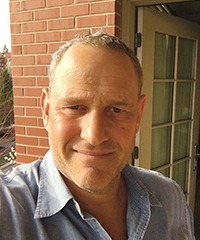Years before COVID-19 turned the educational world topsy-turvy, Douglas Michelman ’82 was concerned about the “homework gap.” Michelman had joined Sprint as the chief communications officer in 2014, and because his portfolio included corporate responsibility, the CEO asked him to reimagine how Sprint could create social impact in a relevant way.
They ultimately settled on addressing the divide between those students with Internet service and those who live in homes without reliable service. They called it the 1 Million Project.
“We announced the initiative in October 2016 and launched our first pilot three months later,” Michelman says.
Eventually, Michelman decided to leave behind his corporate communications work and focus full time on the project, which eventually became a standalone foundation. While Sprint absorbed much of the costs, the foundation needed to raise $5 to $10 million a year. Over three years, the 1 Million Project raised about $20 million. When the 2020-21 school year kicks off, it will have helped connect almost 600,000 students in more than 250 school districts in thirty-six states.
“When we launched, we had to recruit school districts to join us. Many were a little suspicious. The concept of ‘free’ seemed too good to be true,” Michelman says. “But in our first year, we were able to recruit about 150 districts, including Los Angeles, Miami, Chicago, and New York. North Carolina has been one of our strongest participants, and I love that we added Durham Public Schools to our program a couple of years ago.”
If you detect notes of passion in Michelman’s words, you’re reading them correctly. He admits to getting “hooked” on the project, making his other communications responsibilities seem relatively insignificant.
“There were two elements that made the work exciting. The first was the building of the initiative and figuring out how to identify the students in need, how to reach them, and how to deliver free connectivity to them. This was entrepreneurial work for our small team. The second element was my early experiences with students and teachers in schools across the country. As we were launching, I would visit high schools in different parts of the country and spend time with students and teachers. Listening to them talk about their lives and their challenges and, for many, their desire to achieve became incredibly inspiring.”
Of course, much has changed in the last few months. Now, the issue of Internet access is a central issue in education, in the media, and in homes. “But the fact is, before COVID-19, there were about 10 million K-12 students without access to the Internet at home who were trying to learn and achieve,” says Michelman. “That number has not increased. The impact on kids’ ability to reach their full potential has not increased. The only thing that has changed is attention to the issue.”
And Michelman sees that attention as critical. If society sees education as key to addressing issues of equity, he says, then we must ensure all students have the opportunity to learn, study, discover, explore their passions, and achieve in school. These days that requires, among other tools, access to the Internet. “In a country where anywhere from 10 to 15 million students are cut off from the internet when they leave school each day, reaching 1 million students should just be a first step. We—individuals, business, government, and nonprofits—should ensure that every student has equitable access to fundamental connectivity.”
Besides the needs made even more apparent by the pandemic, there have been business changes. In April, T-Mobile officially acquired Sprint, and has made an even bigger commitment—$10 million—to closing the gap. So, the 1 Million Project foundation is winding down. Michelman is looking for his next opportunity, but he’s proud of the work he and his team did.
“As far as I can tell, we were the first philanthropic initiative to focus on the homework gap and did our work when very few people were focused on this issue. I like to think we were pioneers in this small, but important niche area.”


Share your comments
Have an account?
Sign in to commentNo Account?
Email the editor